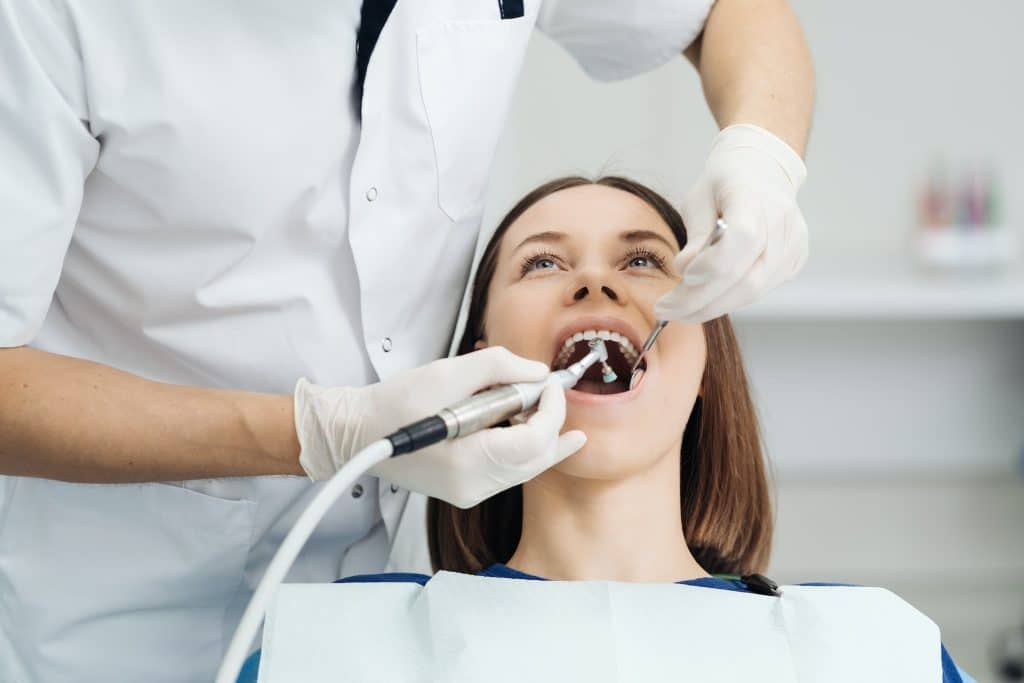New year’s resolutions are something many of us make every year to attempt something new or to re-focus on what’s important in our lives.
Getting our finances on track, travelling to new destinations and spending more quality time with family and friends are all worthy goals to achieve. But one of the most crucial things we should be focusing on is our health.
For this reason, getting regular health check-ups throughout the year is something we should all vouch to do.
Preventative Health focuses on the value of health before illness and in getting regular health check-ups. It also utilises early detection programs to ensure you are maintaining your health and being the best version of yourself you can be.
With that in mind, here are five health check-ups you need in 2023. Commit to these, and next year could be a very healthy and happy one for you! Please note the screening and timing of these are for early detection. Regular check-ups will depend on your age, gender and date of your last screening.
1. Skin Cancer Screening
Australia has one of the world’s highest rates of skin cancer.
Therefore, regularly checking your skin is very important, as it can provide early detection of spots, freckles and moles that might be harmful to you. If you spend a lot of time in the sun and notice any changes in the appearance of these blemishes on your skin, it is important to have them checked out.
The Cancer Council advocates you thoroughly check over yourself using a handheld mirror and good lighting. Be sure to evaluate all your freckles, spots and moles for signs of bleeding, flaking, weeping, crusting or ulceration. If there are some you can’t easily see, ask your partner, family member or close friend to look at them for you.
What you need to look for specifically, is any changes in shape or colour. Likewise, keep an eye out for spots which look scaly, inflamed, dry, pale red, pearly or just feel unusually itchy.
If you visit your GP, they can do an entire body skin check on you to look for any signs of skin cancer. Alternatively, they may refer you to a specialist who can better diagnose and treat skin conditions.
As a rule, most of these skin checks are performed every year. Unless the doctor recommends another check-up in between.

2. Dental Health
The Australian Dental Association recommends you visit your dentist for a check-up every six months.
Poor dental hygiene can significantly contribute towards gum disease. This in turn is directly linked with heart disease, as well an increased risk of dental cavities and various other health complaints.
So, it is very important to maintain a regular at home oral hygiene routine. You should also regularly visit your local dental practice for check-ups. During this time, a thorough practice, such as the team at Putney Dental Care can also clean and remove plaque that has built up around your teeth.
A regular examination draws upon the dentist’s up-to-date knowledge, skills and modern technology – all in a virtually pain-free environment.
Six monthly check-ups, when supported with a good at-home routine, should help to keep your teeth robust and healthy.
3. Cervical Screening
The Federal Department of Health recommends that any female between the ages of 25 and 74 who has a cervix should have a cervical screening. You can join the National Cervical Screening Program to get reminders sent to you for whenever a forthcoming test is imminent.
Currently, these tests are recommended to take place on a 5 yearly basis.
The pap smear test was discontinued back in 2017 in favour of a procedure called the Human Papillomavirus (HPV) test. To perform this test, either a nurse or doctor will use a long and thin swab to collect a tiny sample of your cervical cells.
These cells are then put onto a clear glass slide that is dispatched to a laboratory. There they are analysed to see if there are any signs present of the HPV infection – in some cases of cervical cancer, this is often identified as a major cause of it.
If there is an infection present, the cells are double checked to locate any changes, and a referral may be required for further assessment.
Most of these results will find no HPV present. If this is the case for you, your healthcare provider will advise you to do the cervical screening test again in 5 years.

4. Heart Health
Regular Heart Health checks can discover any issues relating to the healthiness of your heart, this is especially necessary if you’re a woman.
In Australia, coronary heart disease is very often the underlying cause of a heart attack, which is the country’s number one cause of death. Coronary heart disease is caused when the arteries leading to the heart become narrow and hardened.
People over the age of 45 (or 30 years of age for indigenous people or those born in the Torres Strait) are recommended by the Heart Foundation to get a check-up on their heart health every couple of years.
Within this consultation, your GP will assess a range of factors with you, including your diet, family history, exercise habits and associated risks to your heart health like obesity and smoking.
They will also monitor your blood pressure levels and order urine and blood tests. These tests will ascertain whether you have high cholesterol or blood pressure, low blood sugar levels or even signs of kidney disease.
Your GP uses this information to assess your likelihood of a heart attack or stroke in the next five years. Crucially, understanding your risk is the first step in lowering the risk. Should you require them, your GP will advise you on any immediate steps to lower your chances of heart disease.
Thankfully, heart health checks are covered by Medicare and are free at practices that bulk bill this type of service.
5. Breast Health Screen
Breast screening (mammogram) is a low-dose x-ray examination of your breasts. It can detect breast cancer before there are any signs or symptoms. Early detection through screening mammograms is designed to find any signs of breast cancer early. This is when the treatment is likely to be most successful.
It is recommended that women aged between 40 and 74 or who have a personal or family history of breast cancer get a breast screening every two years.
For those that are at an increased risk of developing breast cancer, a yearly mammogram may be recommended by your GP. These screenings would involve a more tailored program, including a breast MRI.
Be sure to do a monthly self-exam and see your doctor if you notice any abnormalities or changes to the shape of your breast. Keep an eye out as well as for discomfort, dimpling or redness on your skin.



